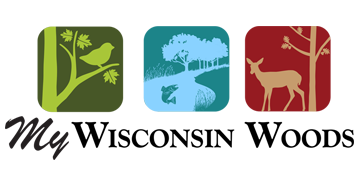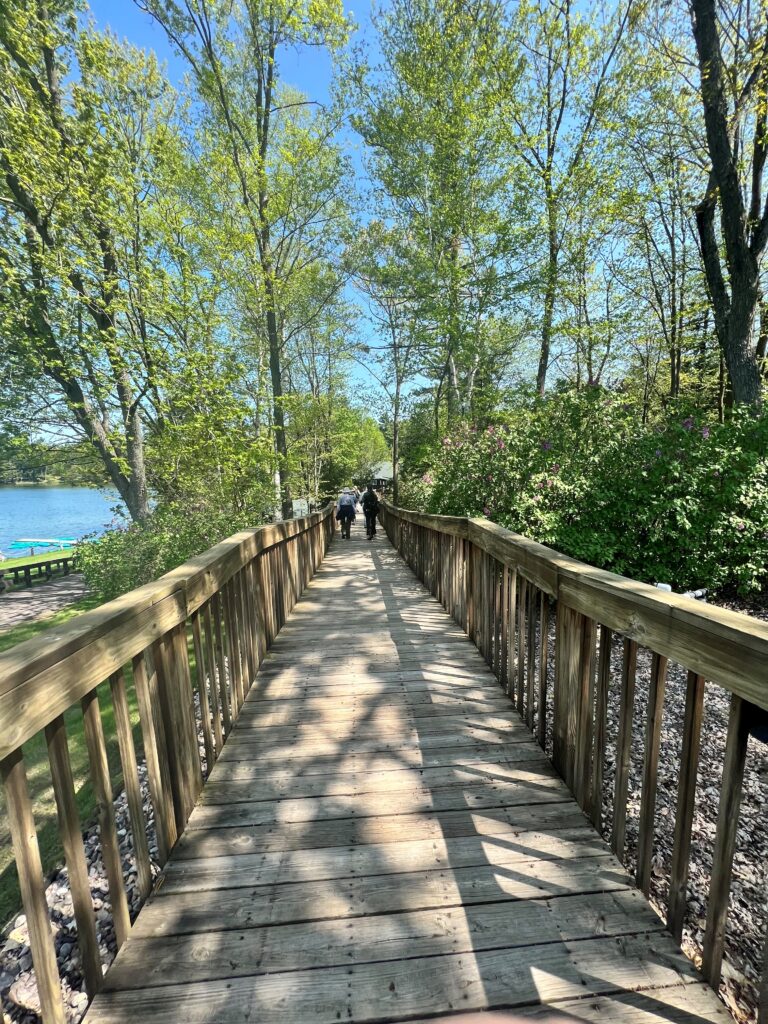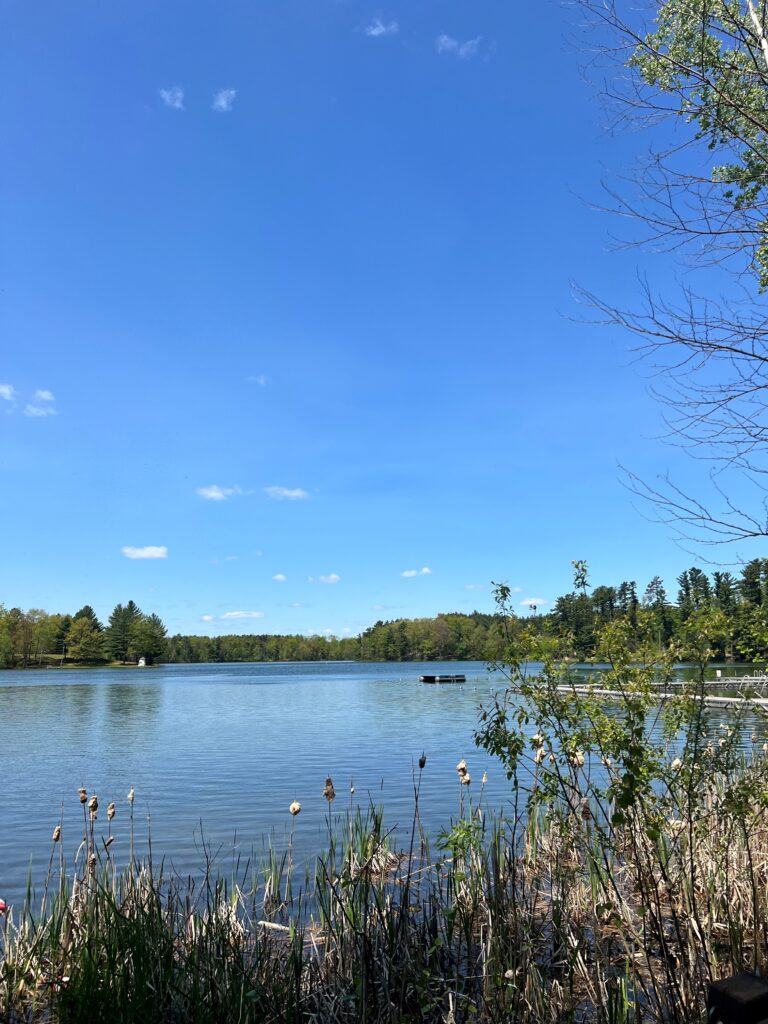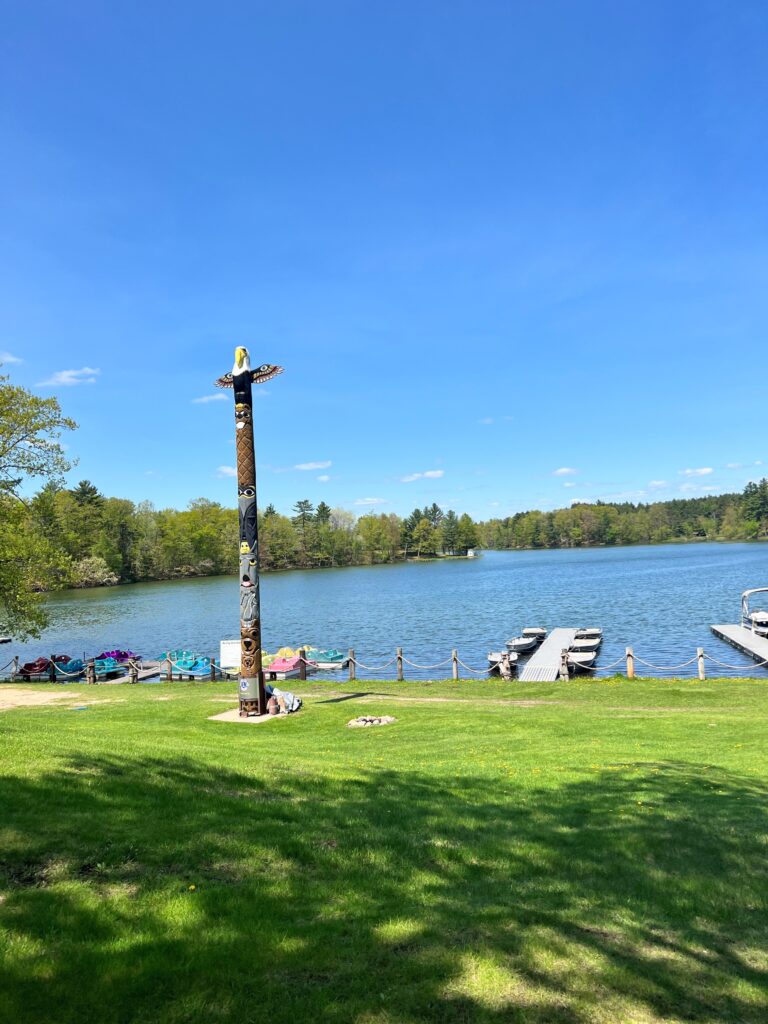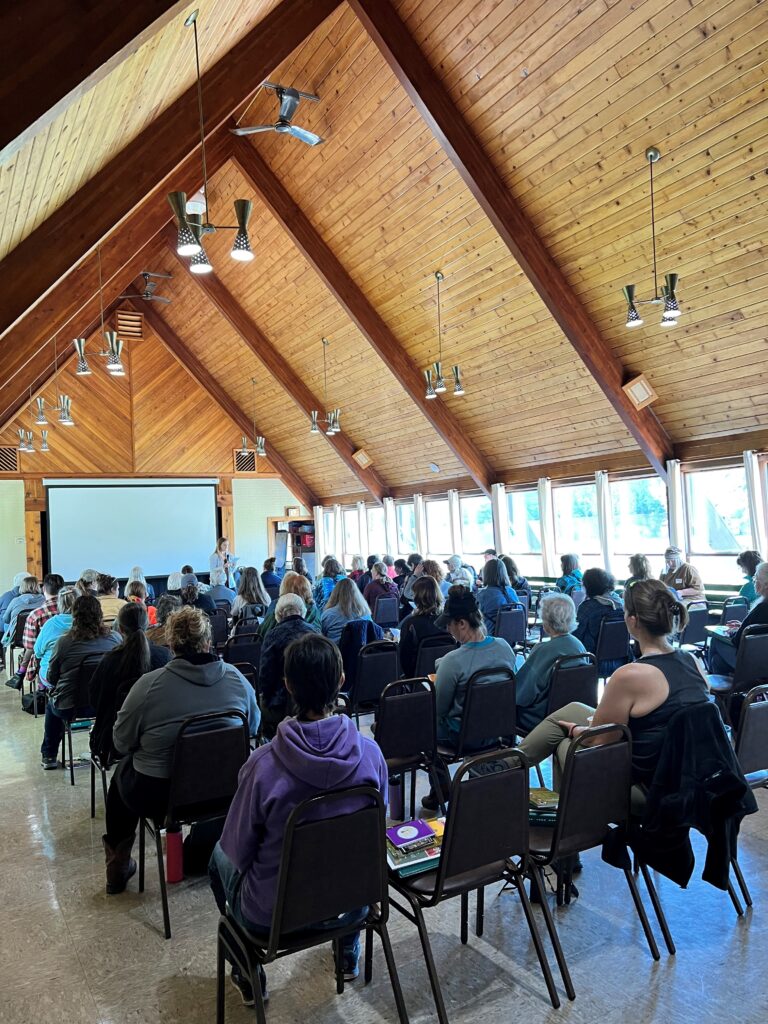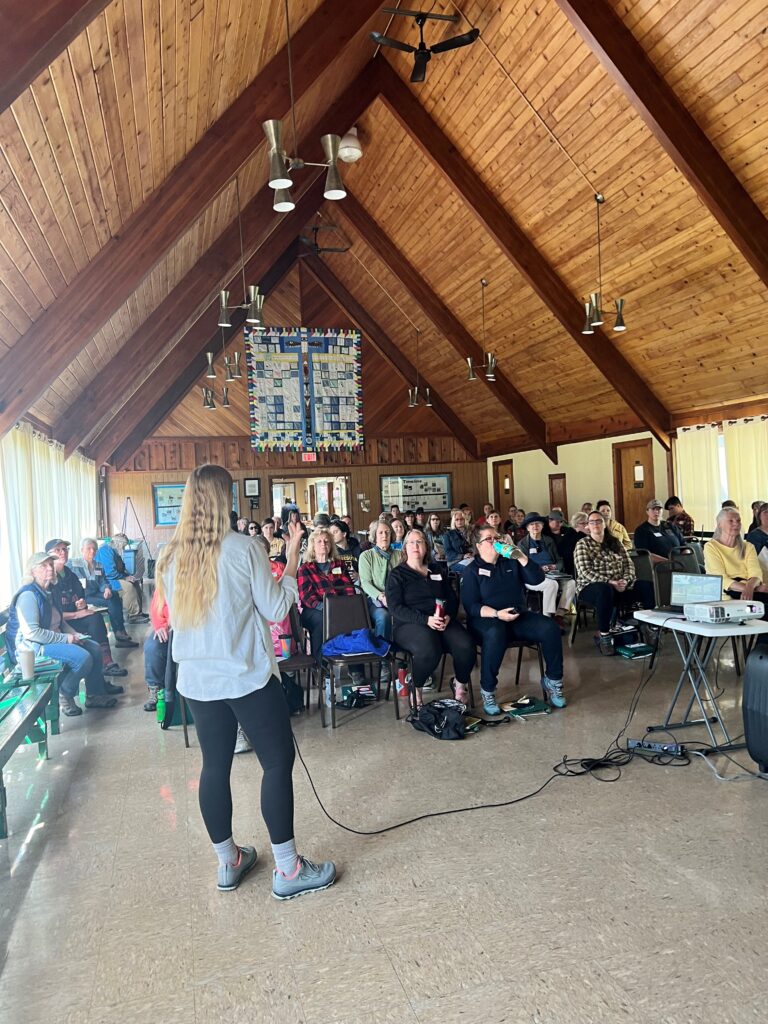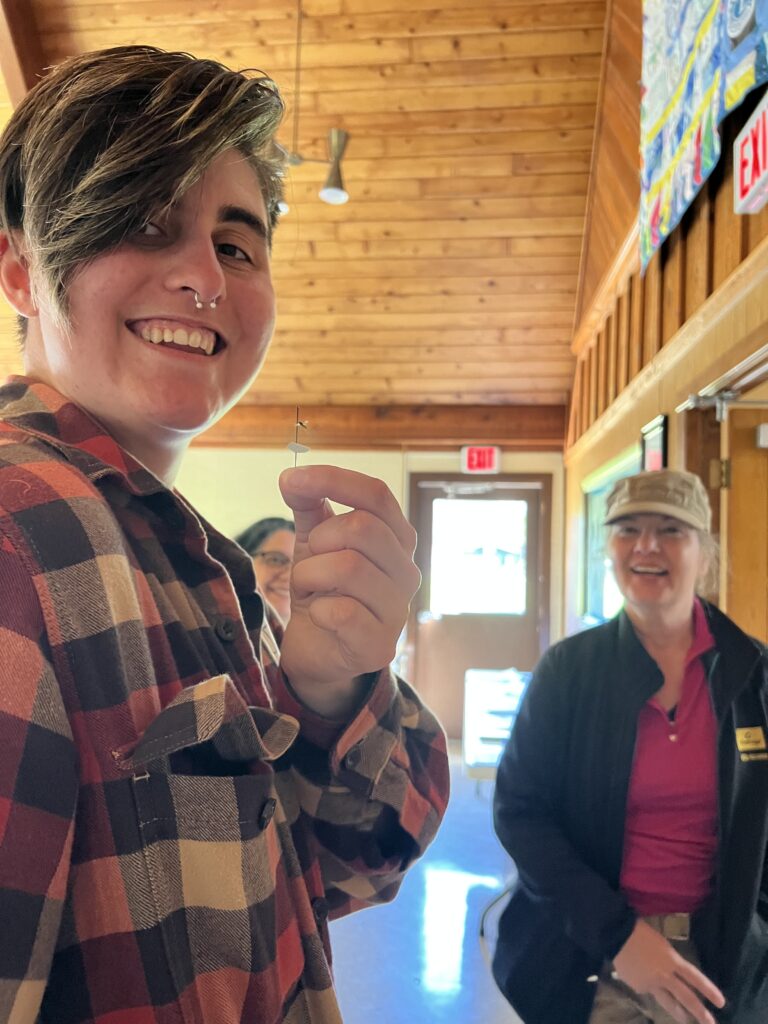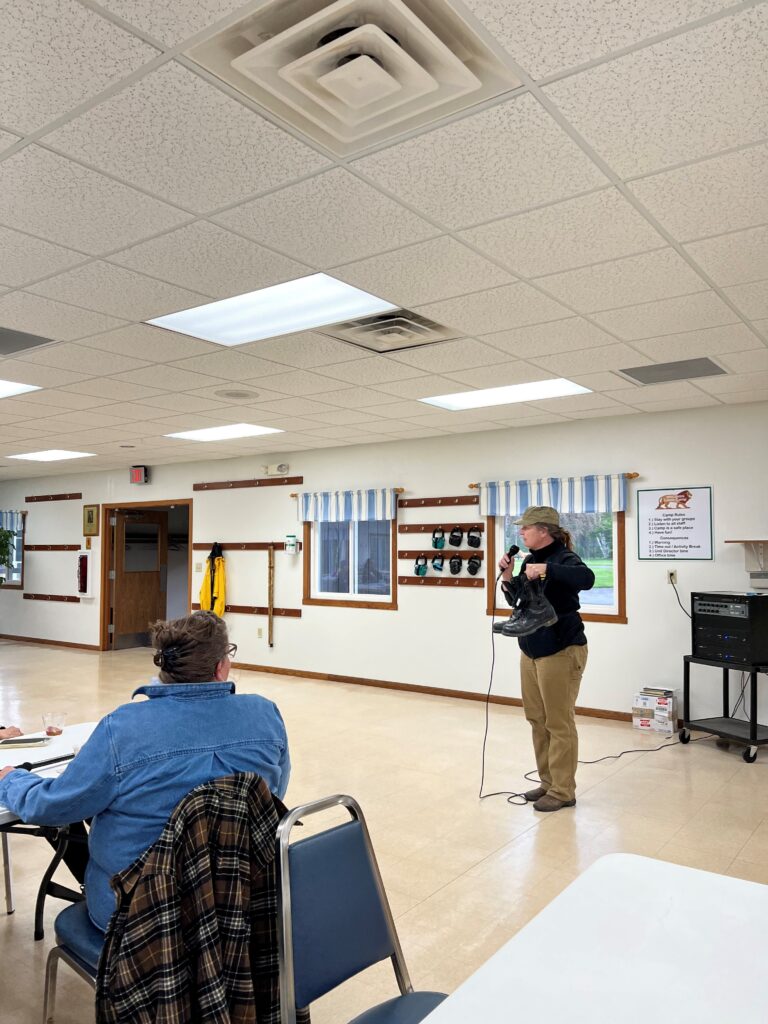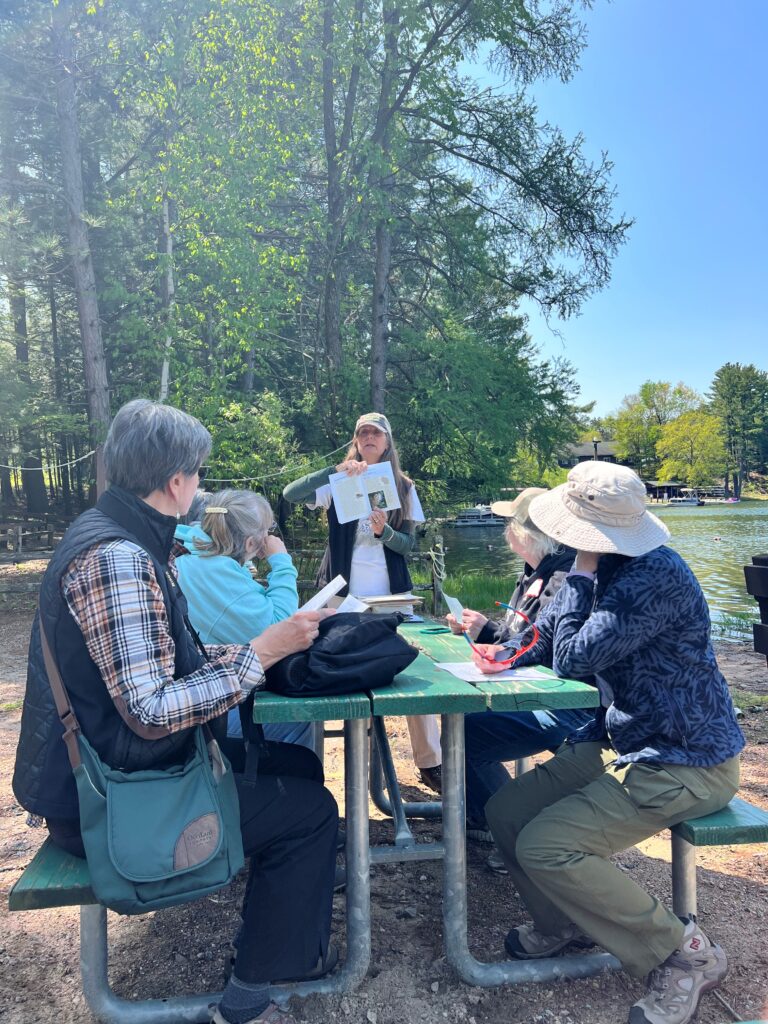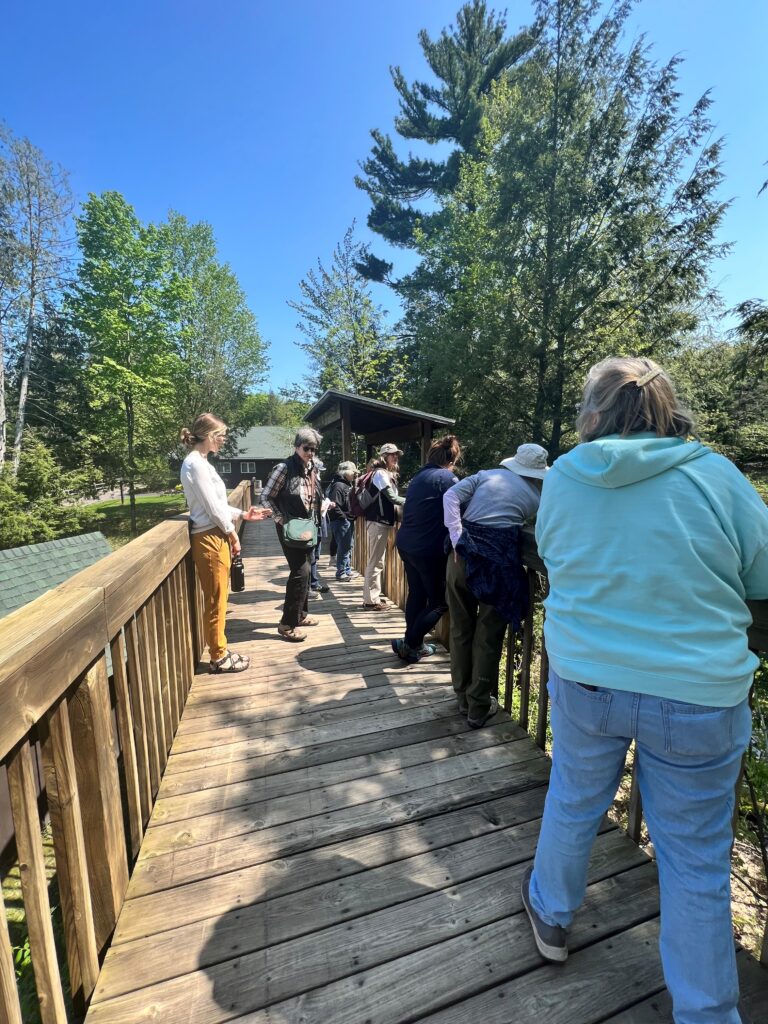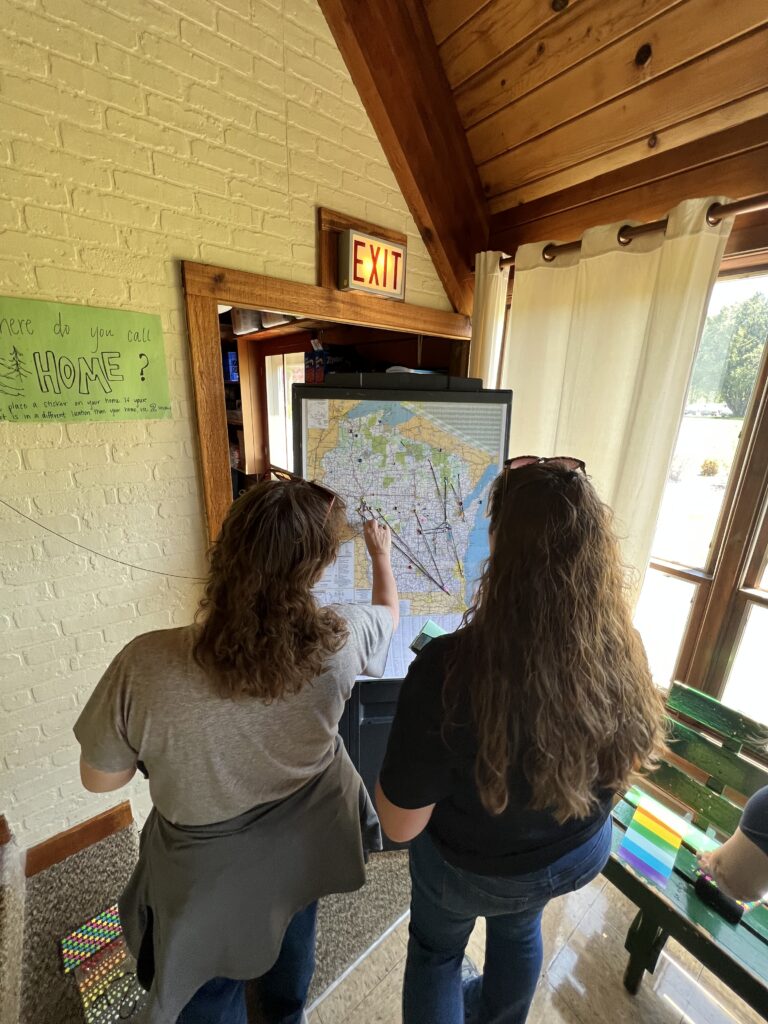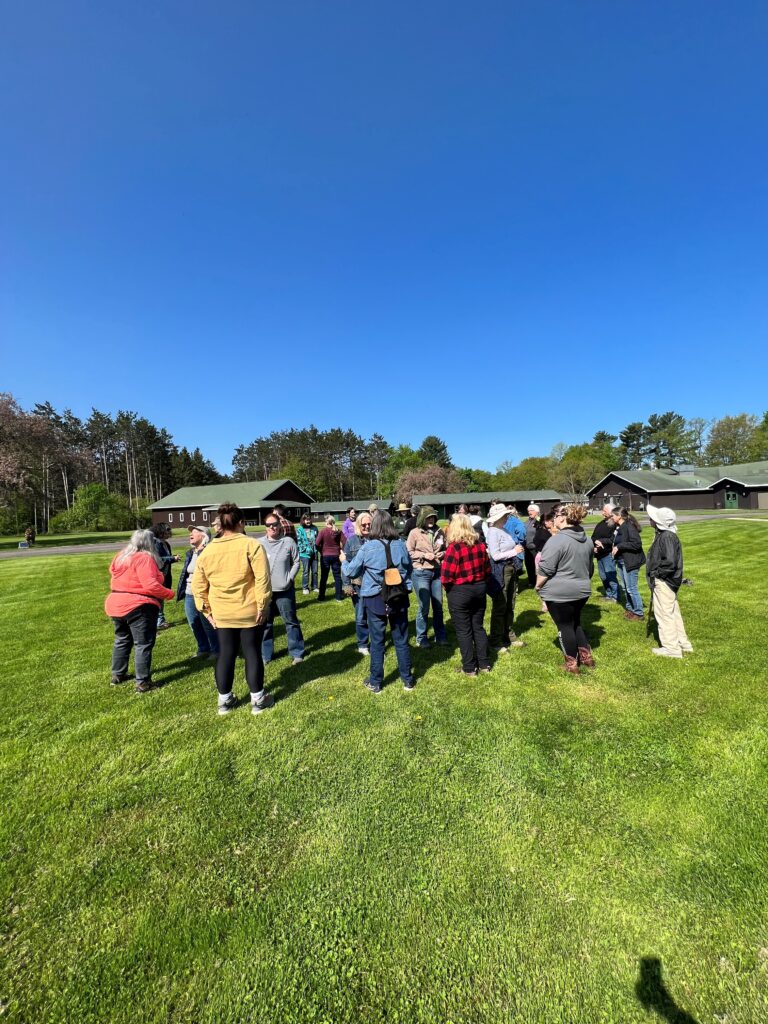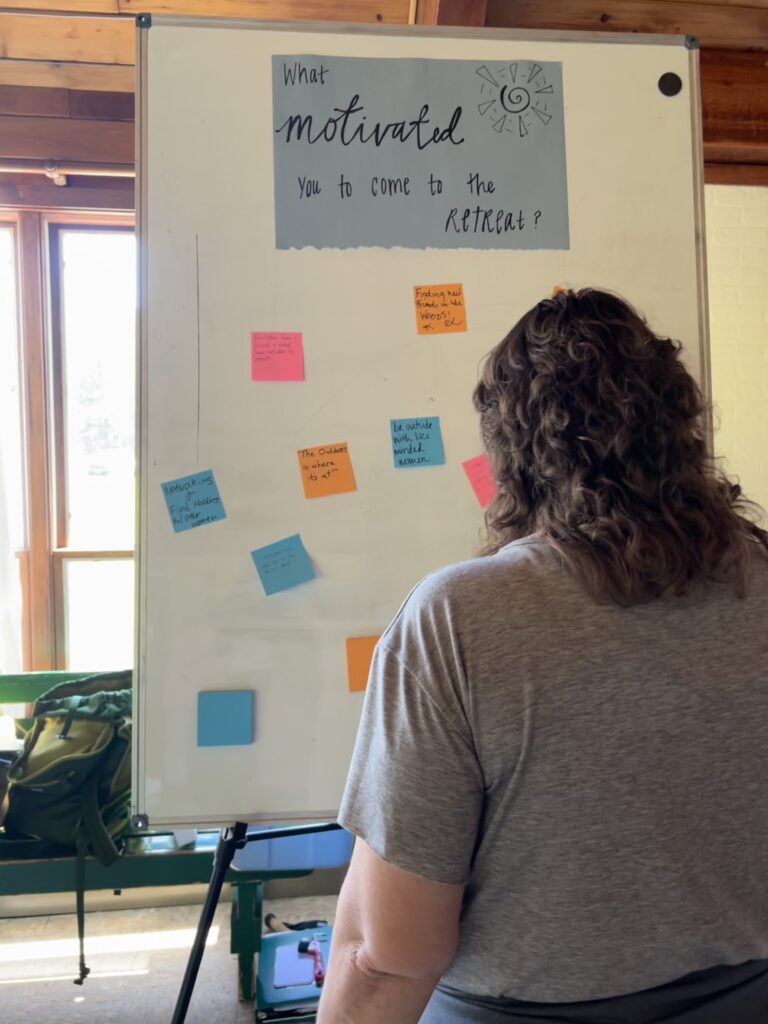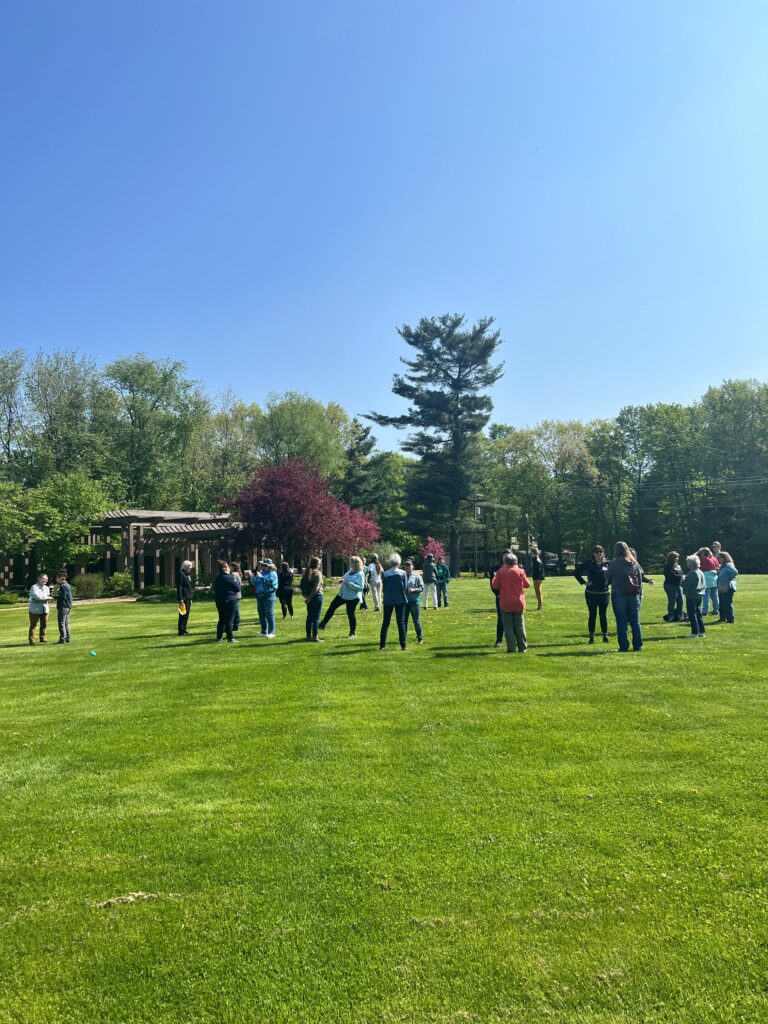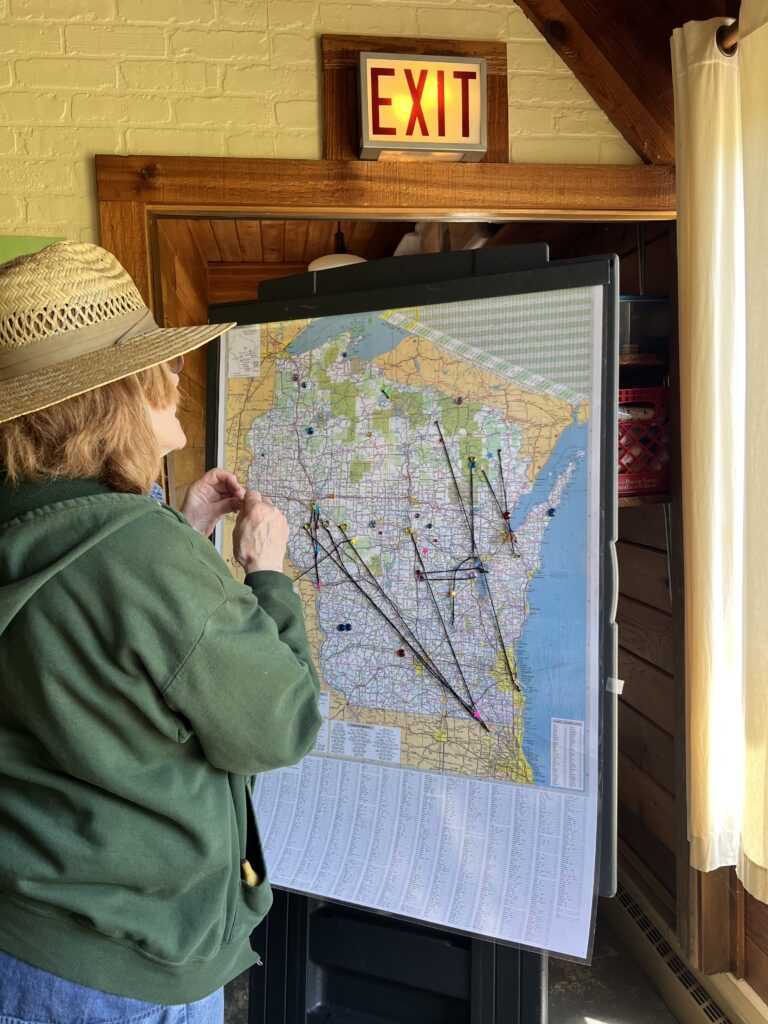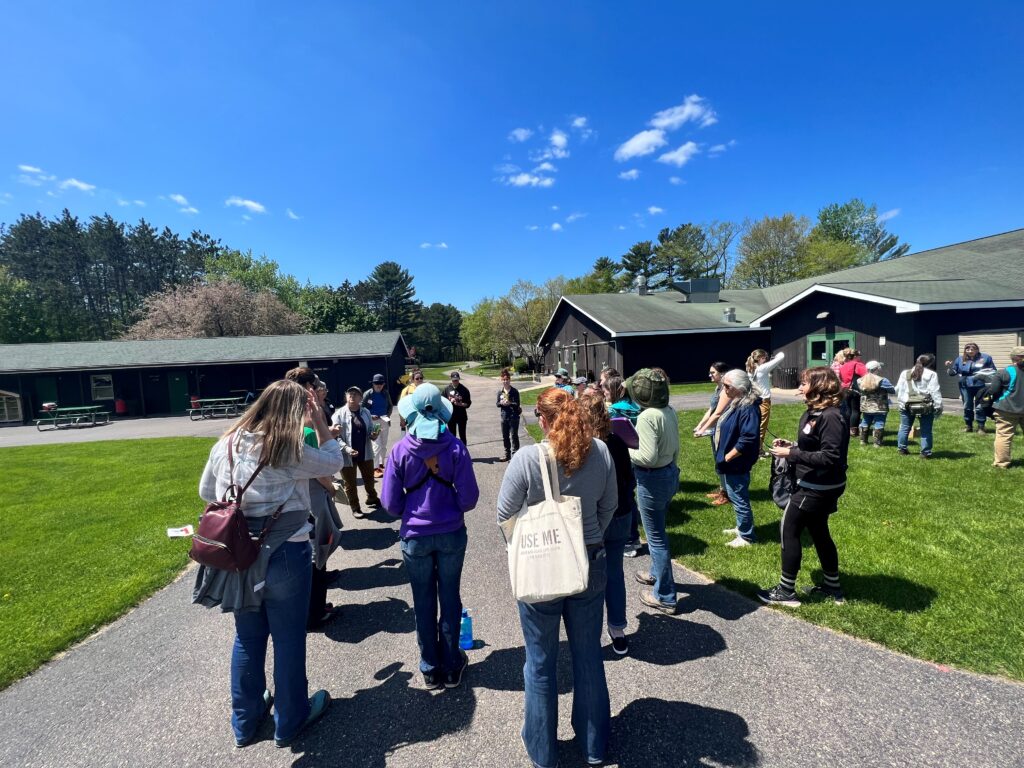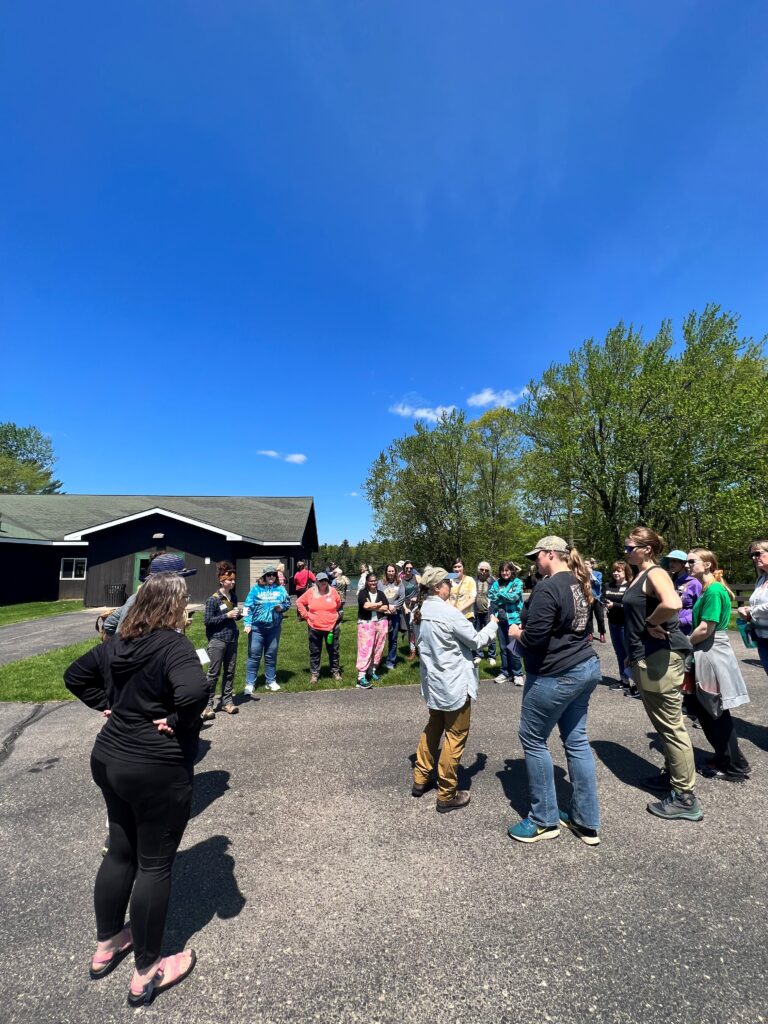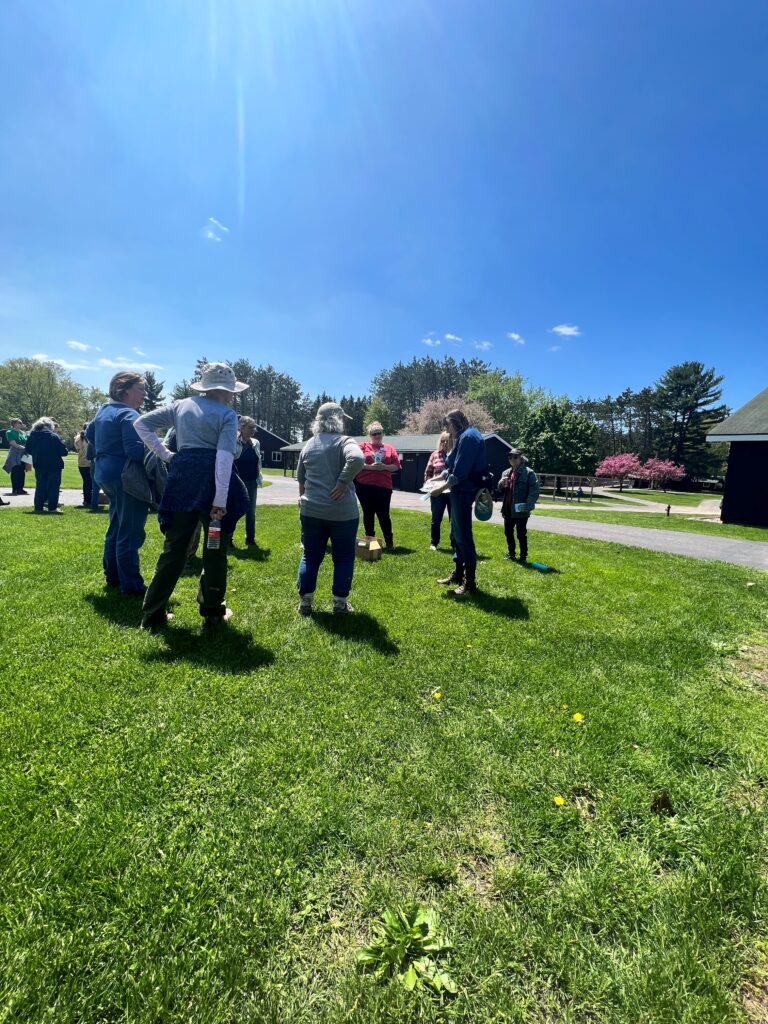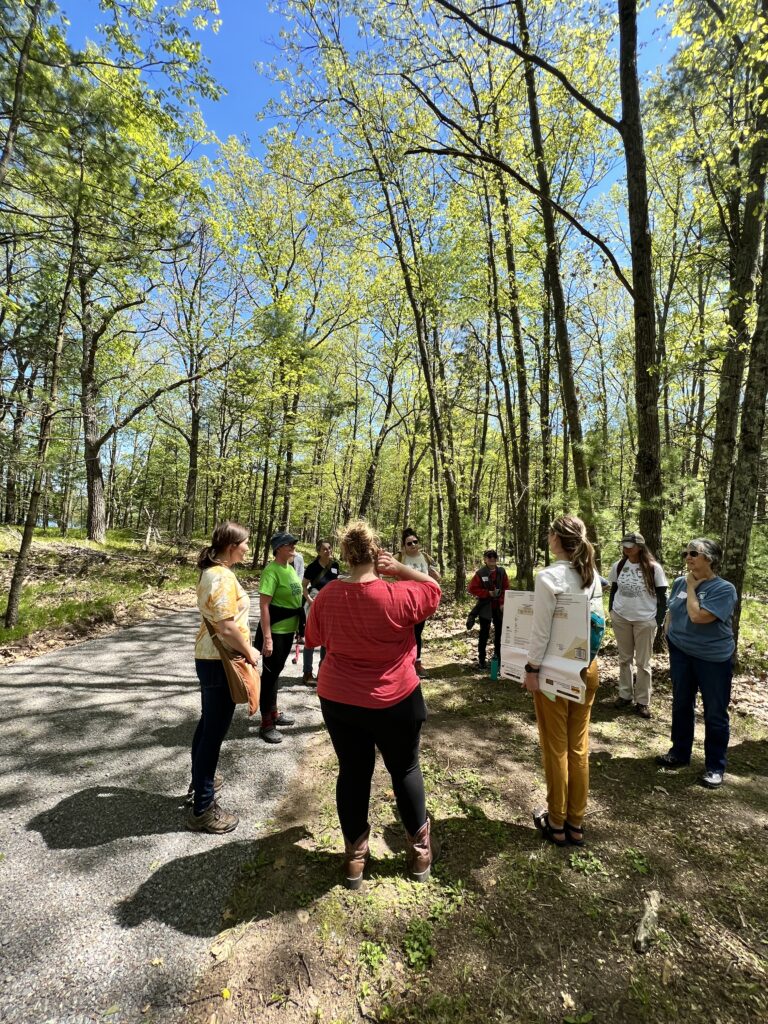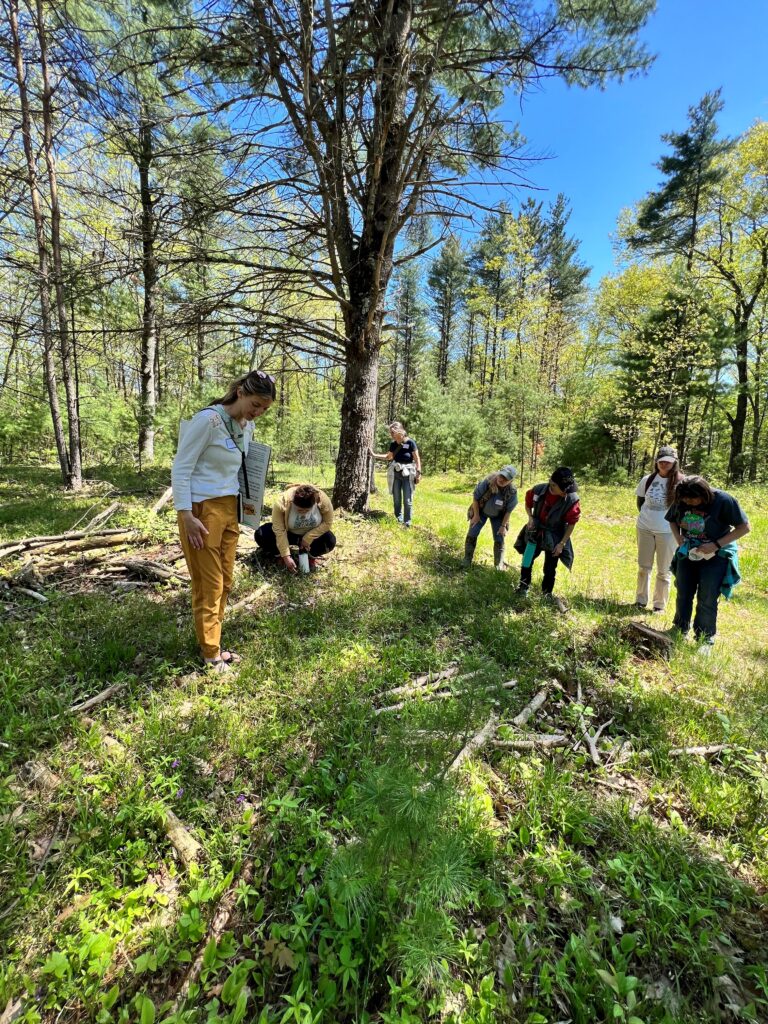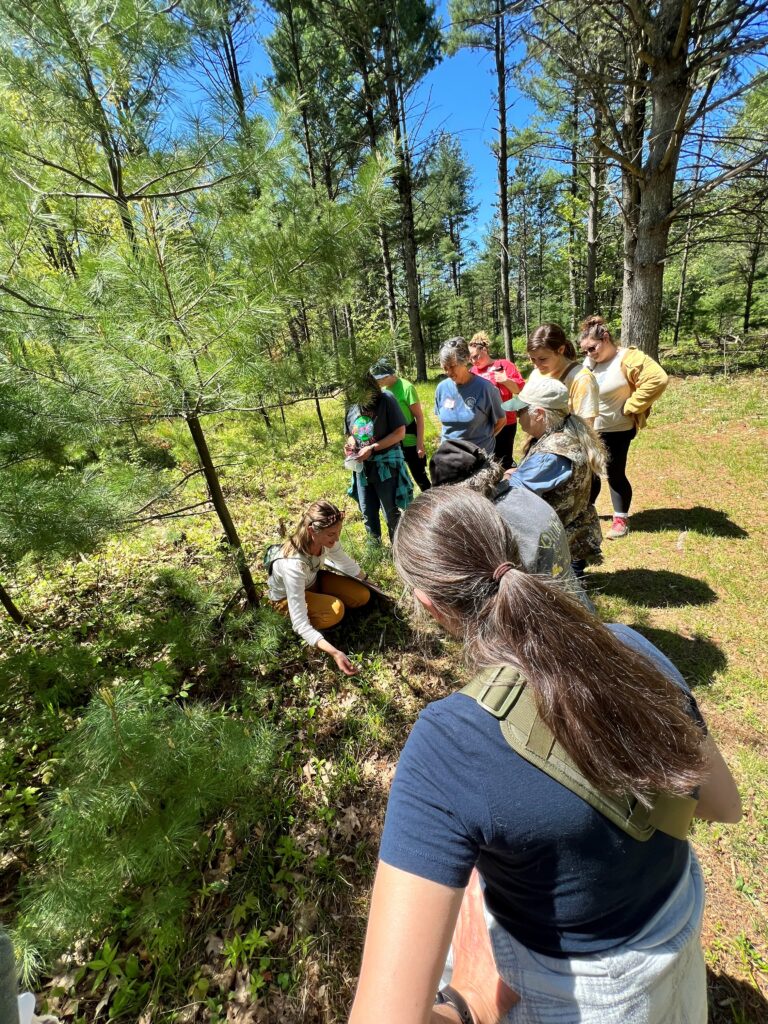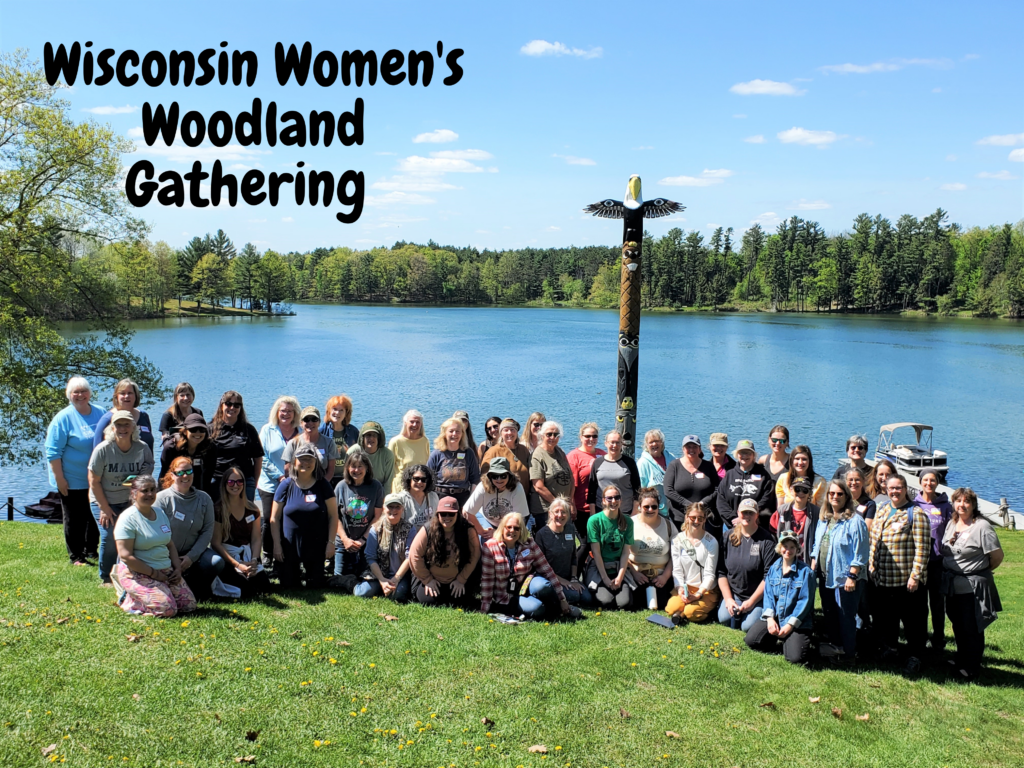
Empowering Women in Wisconsin’s Woodlands
The Wisconsin Women’s Woodland Gathering brought together 80 women woodland owners for a weekend filled with learning, connection, and inspiration. Hosted by the Wisconsin Department of Natural Resources, University of Wisconsin of Stevens Point: Wisconsin Forestry Center, University of Wisconsin-Extension, Wisconsin Woodland Owners Association, My Wisconsin Woods, and the Aldo Leopold Foundation, the event showcased the ongoing support, education, and empowerment of women woodland owners in Wisconsin. These partners were brought together by the US Forest Service Landscape Scale Restoration grant.
Set against the backdrop of the picturesque Wisconsin Lions Camp, with its expansive 440-acre property and a serene 45-acre lake, the gathering provided the perfect setting for participants to immerse themselves in the beauty of nature and expand their knowledge of woodland management.
The event commenced with an optional overnight stay on Friday, fostering an atmosphere of camaraderie and networking among attendees. Women had the opportunity to engage in meaningful conversations, share experiences, and participate in the lively “Show ‘n Tell” session, where they showcased their woodland-related projects and discoveries.
On Saturday morning, participants had the option to embark on a sunrise bird hike led by Jamie Nack, a knowledgeable wildlife biologist, setting a serene and immersive tone for the rest of the day.
The gathering featured a range of sessions led by experienced professionals, each sharing their expertise on different aspects of woodland management. Olivia Kovacs, a Natural Resources Educator, guided participants in a captivating field session on Spring Ephemerals & Woodland Flora, fostering a deeper connection with the natural world and highlighting the importance of preserving and protecting these fragile ecosystems.
Other sessions covered a wide array of topics, empowering participants with valuable insights and knowledge. Jamie Nack, a Senior Wildlife Outreach Specialist, led a session on wildlife management planning, providing strategies for sustainable wildlife conservation. Colleen Matula, a retired Forest Ecologist/Silviculturist, shared her expertise on responsible foraging, emphasizing the importance of sustainable harvest practices.
Alex Feltmeyer, a Forest Health Specialist, and Mary Bartkowiak, the Forest Invasive Plant Program Coordinator, addressed the vital aspect of forest health, offering participants insights into managing insects, diseases, and invasive plants to ensure the long-term well-being of woodlands.
Häven Epstein, the Volunteer Coordinator at the Wisconsin Woodland Owners Association (WWOA), facilitated an engaging session on the art of nature looms, combining creativity and connection with the natural world. Participants explored their artistic side while appreciating the beauty of woodlands.
Julia Wiessing, a UW researcher, shed light on the importance of woodland pollinators, enhancing participants’ understanding of the intricate relationships between insects and their environment, emphasizing the role of pollinators in maintaining healthy ecosystems.
Rebecca Christoffel, a dedicated wildlife conservationist, led an exciting field session on wildlife observation and conservation, focusing on Wisconsin’s rare amphibians and reptiles. Through her passionate approach, participants developed a deeper appreciation for the wonders of woodland wildlife, including these often-overlooked creatures.
The Women’s Woodland Gathering provided a nurturing environment for women to connect, learn from one another, and build a strong community of woodland owners. It served as a testament to the passion, dedication, and resilience of women in Wisconsin who are committed to preserving and stewarding their woodlands.
As the gathering concluded, attendees left with a renewed sense of purpose, armed with new knowledge, valuable connections, and a deepened commitment to the sustainable management of their woodlands. The event laid the foundation for continued growth, collaboration, and success in preserving Wisconsin’s woodlands’ natural beauty and ecological richness.
